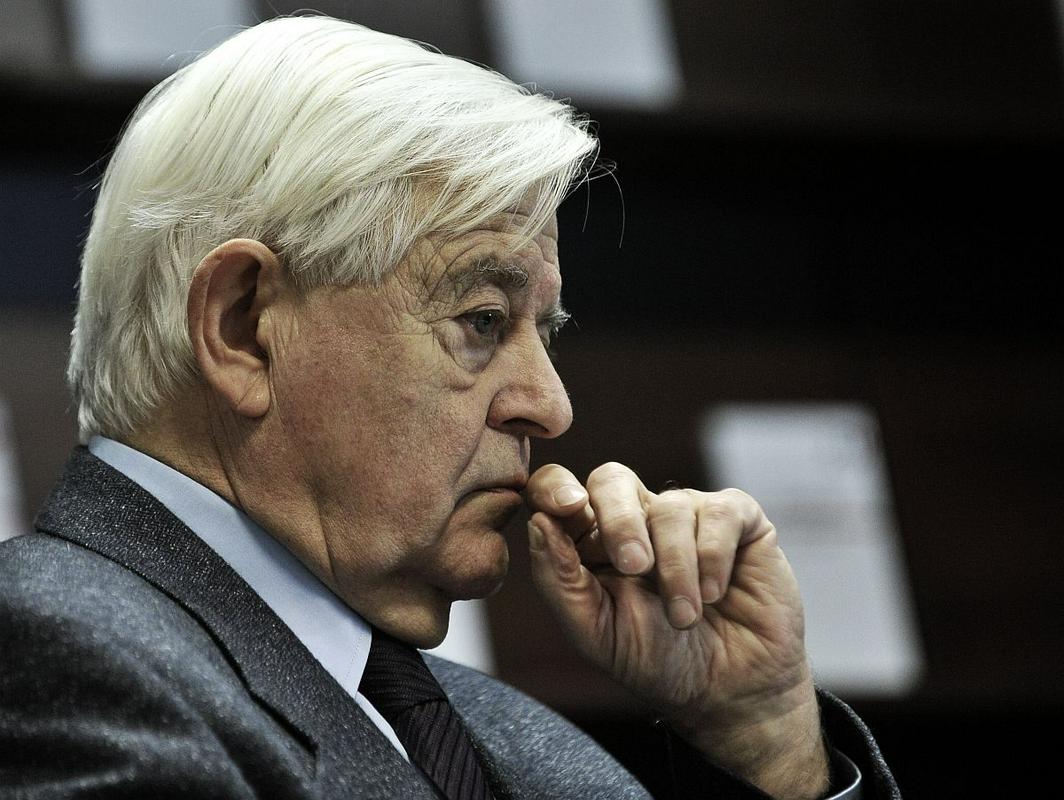
The interview touched upon the referendum on Slovenia’s independence that was held 25 years ago. The pair also talked about the country’s development over the past quarter century. “I am upset about the book-burnings,” Kučan said.
“I can’t say that this is what we’ve been fighting for,” Kučan said at the beginning of the interview. No-one could have anticipated the way things would ultimately play out for us. We were in a crisis and we found ourselves faced with a lack of prospects. Nonetheless, we were brimming with optimism and we believed that a clean break with the previous system would allow us to overcome the crisis. However, it was already clear back then that we had different expectations.
Book-burnings and culture as the backbone of a nation
Kučan was asked how he felt about the attempted burning of his biography in front of his house. “This really upset me. Similar things have happened in other parts of Europe. We are witnessing a resurgence of activities that were common before World War II. The European Union is based on the idea that this is something we had left behind long ago. It seems that Europe has turned a blind eye to such phenomena,” Kučan answered.
It appears that Slovenia would rather shoot the messenger than address the issue. “It’s obvious that the individuals who tried to burn my biography in front of my house have been turned against me,” he said. He is worried that the incident will be ignored – not because it happened in front of his house but because it follows an old pattern. “It started with book-burnings, continued with the persecution of Jews and ended with the Holocaust. It’s worrying that those who think this doesn’t concern them have remained silent,” he said.
The EU today
Kučan believes that solidarity and tolerance are the core values of the European Union, but nowadays we are witnessing a lack of solidarity and tolerance. The expectation that those and similar values would flourish after the EU’s expansion in 2004 has not materialized. The expansion was motivated by economic gain, while the underlying values were ignored.
Former League of Communists
“The League of Communists played a key role in the secession of Slovenia from Yugoslavia. Every political decision – the reforms, the role of the federation etc. – started with the League of Communists. But the era of one single truth has ended,” Kučan said, adding: “In a country or society in which only one person thinks, nobody really thinks.” New ideas have cropped up everywhere, but what tipped the scales was the fact that the League of Communists felt that change was necessary. Its leadership enjoyed support both inside and outside its ranks. In response to the question of what should happen now, Kučan answered: “Pluralism.”
“They accuse me of having been opposed to Slovenia’s secession from Yugoslavia. I’m still opposed,” Kučan said, adding that the statement must be evaluated in its context: “A legal solution was offered to us within the framework of the former system. However, accepting it would mean that Slovenians would become a nation without a history, with no right to participate in the succession process, and Slovenia would not be the successor to the transnational agreements which Yugoslavia signed with other countries. Those agreements were important because some of them delineate our borders.”
J.P./Radio Slovenija; translated by D. V.

































































